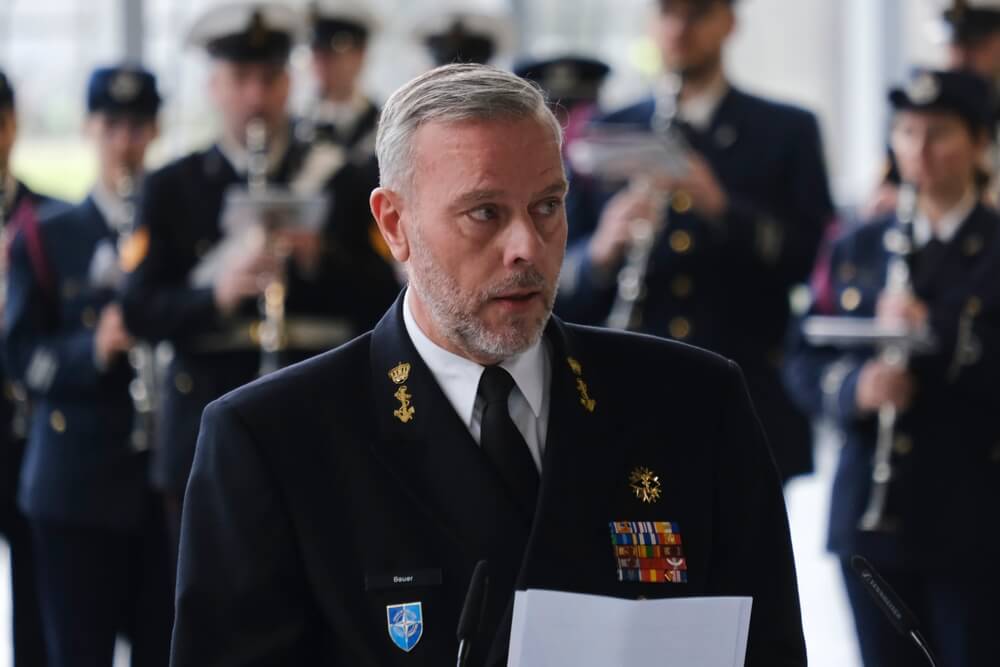The five largest European military spenders have set up a political infrastructure that should be able to mitigate the expected reduction in American aid to Ukraine when Donald Trump enters the White House in January.
John Healey, UK Defence Secretary, christened this grouping "E5," which includes the UK, Germany, France, Italy, and Poland.
Although he was not mentioned, the political spirit of Donald Trump loomed over the meeting of the five defence ministers in Berlin on Monday. Their meeting appears to be a timely response from Europeans concerned about the decline in allied support for Ukraine from next January, when Republicans will have all decision-making powers in the legislative and executive branches in Washington.
A defensive bloc of sorts has been created to prevent possible defensive action by the US when it comes to security support, not only for Ukraine but also for its European allies.
"Europe must increase its efforts when it comes to helping Ukraine but above all... when it comes to its own security," said Polish Defence Minister Władysław Kosiniak-Kamysz in Berlin.
Spreading influence
The E5 already looks like a platform capable of extending its influence to other European members of the EU and NATO. Even if there are sceptics among them, such as Hungary and Slovakia, about the continuation of massive support for Ukrainian defence, this will minimise their influence on shared policy.
The Group of Five is by far the largest security grouping in Europe. Its total military budget is more than USD 270 billion per year, only just behind China's (USD 296 billion), although Chinese military spending is significantly higher than publicly disclosed.
The military budget of the E5 group is 2.5 times larger than the Russian war budget
The military budget of the E5 group is 2.5 times larger than the Russian war budget. In addition, the group has one of the largest security industry capacities and accounts for almost 25% of total global arms exports.
Undoubtedly, the group's enormous military capacity also contributes to its political influence. It was promoted in Warsaw last week, where the heads of diplomacy of the Five met. They not only emphasised the security aspect of continuing support for Ukraine but also advocated for further tightening of economic sanctions against Moscow and the bodies enforcing these sanctions.
Cause for alarm based on previous experiences with Trump
The scope of this grouping is undoubtedly large. But will it be enough to counter Washington's possible withdrawal from the allied bloc of Ukrainian defence supporters?
Trump's future stance on supporting Kyiv is still uncertain, although Secretary Healey is among those who are convinced that the US will continue to support Ukraine for as long as it takes, even under Trump's presidency.
However, the experience of Trump's previous term and, in particular, the blockade of his Republican supporters in the US Congress in approving a financial aid package for Kyiv is a clear alarm signal for the Europeans not to leave themselves to chance.
E5’s decisions and policies will not require consensus, which must be secured in NATO and the EU
In this respect, the Five will do good for joint European efforts to achieve greater autonomy in decisions of crucial importance to their security space.
E5’s decisions and policies will not require consensus, which must be secured in NATO and the EU. This has often been abused by sceptics like Viktor Orbán, who succeeded in blocking important decisions.
Secondly, their influence on other European partners is undeniable, given their status as the largest European economies. Additionally, the UK, through its participation in the E5, shares responsibility with its EU partners for a common security space.
Defence budgets
Europeans should not be overly concerned about the new meeting with Trump, given his previous warnings and threats to increase defence spending.
Since most European allies' military budgets have reached and largely exceeded the 2% of GDP threshold Trump once demanded as a result of the Russian invasion of Ukraine, this topic has been removed from the agenda. Beyond that, they are moving towards double that amount, i.e., the 4% of GDP that Trump also campaigned for during his last term in office, albeit without success with the allies.
 The overall percentage that is necessary to make the new plans executable is much closer to 3% of GDP than it is to 2% - Admiral Rob Bauer
The overall percentage that is necessary to make the new plans executable is much closer to 3% of GDP than it is to 2% - Admiral Rob Bauer
"The overall percentage that is necessary to make the new plans executable is much closer to 3% of GDP than it is to 2%," said Dutch Admiral Rob Bauer, the Chair of the NATO Military Committee, in Brussels.
One of the roles that the European Five will definitely use to strengthen European security support to Ukraine is the management of the NATO training centre and the synchronisation of allied assistance to Ukraine at the base in Wiesbaden, Germany.
The NATO summit in Washington last summer decided to establish this centre, which will coordinate all allied assistance to Ukraine starting next January.
The framework for mitigating a possible negative scenario from Washington regarding support for Ukraine has been largely mapped out. For the time being, it is the embryo of a new mechanism for security co-operation between the European allies, which will be able to overcome some of the current gaps in the decision-making process in the existing NATO and EU institutions.